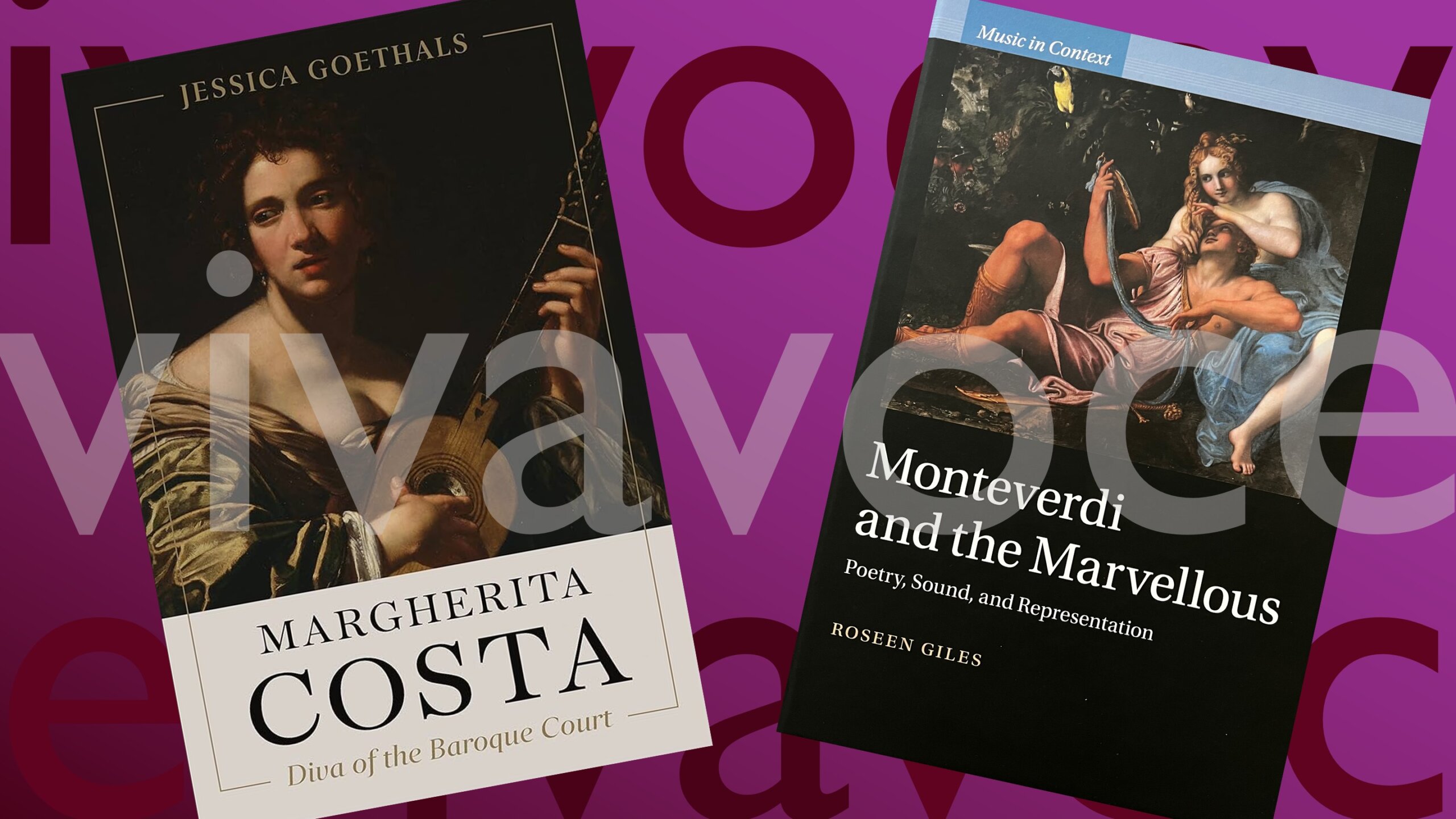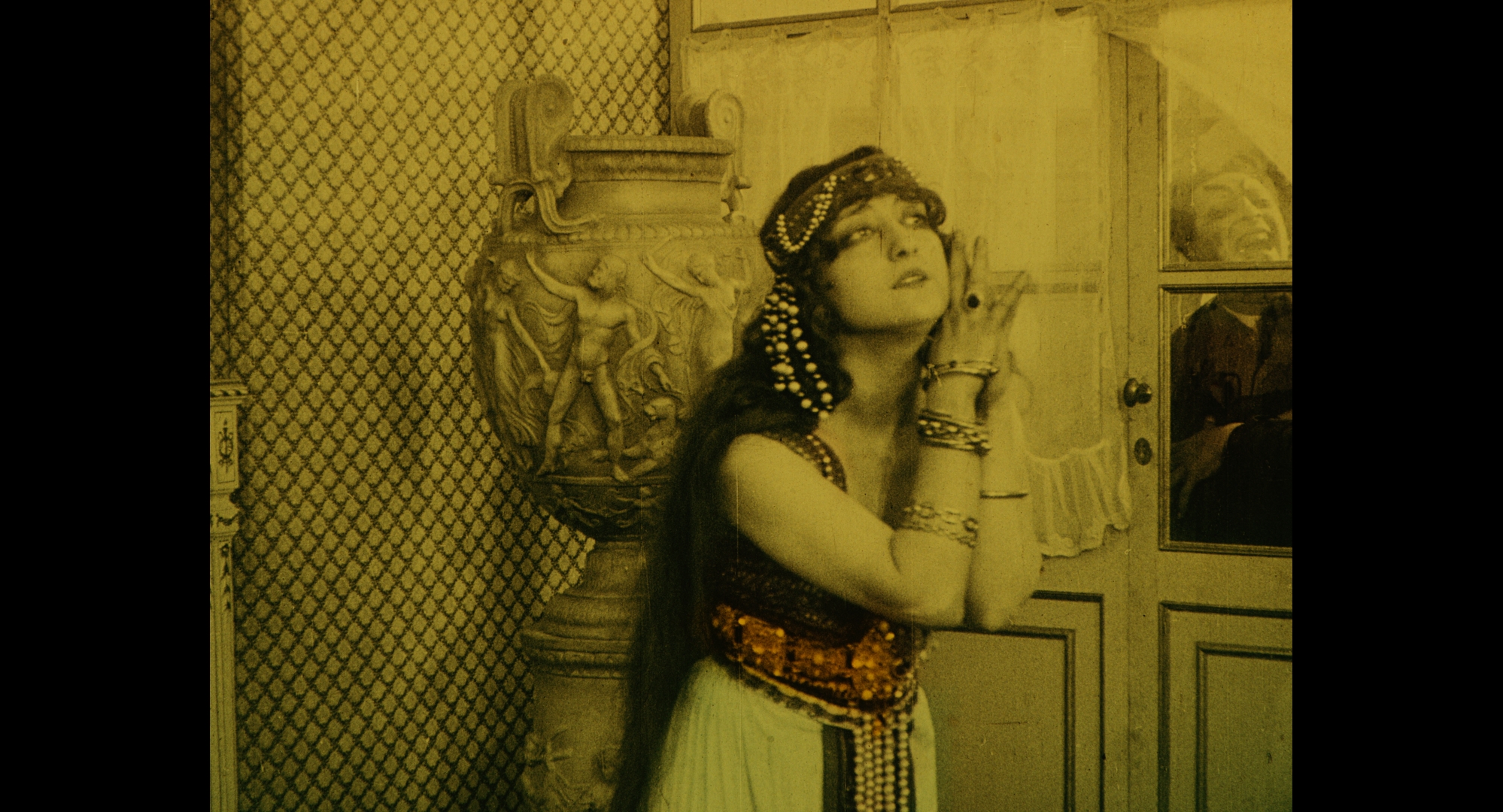
- Book Presentation
The Diva and the Maestro
Song, Poetry and Performance in Baroque Italy
View details about the event: The Diva and the Maestro

Drama Queens: When Melodrama Meets Film
Part of the Festival
Drama Queens: When Melodrama Meets Film
March 8-15, 2024
NYU Casa Italiana Zerilli-Marimò (24 West 12th Street)
Presented by
NYU Casa Italiana Zerilli-Marimò
NYU Department of Italian Studies
In collaboration with
Cineteca di Bologna
Program curated by
Mila Tenaglia
A festival of rare and restored films from the Cineteca of Bologna featuring Francesca Bertini and Lyda Borelli. If you think early cinema was silent and in black and white, think again! Many of these films were hand-tinted frame by frame, and had original scores by some of the major composers of the time, such as Mascagni and Pizzetti.
Screening
Rapsodia Satanica
(Italy, 1917, 55′, silent)
Directed by
Nino Oxilia
Starring
Lyda Borelli
Recorded score by
Pietro Mascagni
Performed by the orchestra of the Teatro Comunale in Bologna
A Faustian tale about an old woman who makes a pact with Mephisto to regain her youth. In return, she must stay away from love. However, after signing the pact, she meets two brothers who fall in love with her.
Followed by the book presentation of
Velvet Curtains and Gilded Frames
The Art of Early European Cinema
(2023, Edinburgh University Press)
by Vito Adriaensens, NYU
The author in conversation with
Eugenio Refini (NYU)
In ENGLISH
Velvet Curtains and Gilded Frames explores the intermedial context of early cinema. It tackles the first European feature films’ intricate relationship with its sister arts to reveal that the period referred to by historians as the “long nineteenth century” was one in which Bourgeois Realism reigned supreme. The nineteenth-century rise of the middle class coincided with realism becoming the dominant artistic mode in both form and content, leading to a revival of genre painting in the art academies; the supremacy of the social melodrama on the stage; and the advent of Pictorialism in photography. In its quest for artistic legitimacy, European filmmakers sought to win over middle-class audiences with films based on popular works of art – the first “art films” – by employing similar visual and narrative strategies as its artistic counterparts.
Special thanks for making this program possible:
Guy Borlée (Il Cinema Ritrovato), Andrea Meneghelli (Cineteca di Bologna), Ripley’s Film. Italian Distribution Company, L’Immagine Ritrovata Laboratory, VIGGO, Eye Filmmuseum